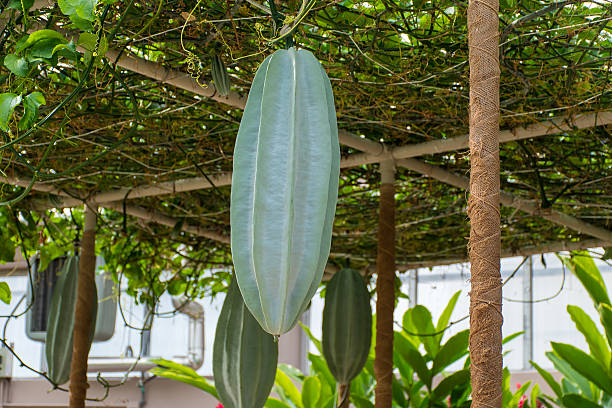Are you an avid gardener looking to grow your own delicious and nutritious okra? Well, you’ve come to the right place! One crucial aspect of successful okra cultivation is using the right fertilizer.
In this article, we will explore the 15 best fertilizers for okra: organic & inorganic. Whether you prefer organic or inorganic options, we’ve got you covered with a comprehensive list that will help your okra plants thrive. So, put on your gardening gloves and let’s dive right in!
The Power of Fertilizers for Okra Growth
Okra, scientifically known as Abelmoschus esculentus, is a warm-season vegetable that requires specific nutrients to achieve optimal growth. Fertilizers play a vital role in providing these essential nutrients to your okra plants, enhancing their overall health and productivity. Let’s explore the fifteen best fertilizers that can give your okra plants the boost they need.
Read Also: 15 Best Fertilizer for Sweet Potatoes Farm [Organic & Inorganic]
15 Best Fertilizers for Okra Farms [Organic & Inorganic]
Organic Fertilizers
1. Compost
Compost is a fantastic organic fertilizer option for okra. It is rich in nutrients and improves soil structure, moisture retention, and overall soil health. By adding compost to your garden beds, you can ensure your okra plants receive a slow and steady release of essential nutrients.
Read Also: 15 Best Fertilizers for Onions Farm [Organic & Inorganic]
2. Manure
Manure from animals such as cows, chickens, or horses is an excellent organic fertilizer choice for okra. It provides a rich source of nitrogen, phosphorus, and potassium, promoting robust growth and higher yields. Make sure to compost the manure before applying it to avoid burning the plants.
3. Fish Emulsion
Derived from fish waste, fish emulsion is a potent organic fertilizer for okra. It contains a balanced blend of macronutrients and micronutrients, ensuring healthy plant development. Fish emulsion is typically applied as a foliar spray or diluted and added to the soil.
Read Also: 15 Best Fertilizer for Cocoa Farm [Organic & Inorganic]
4. Seaweed Extract
Seaweed extract is a natural and sustainable fertilizer option that works wonders for okra plants. It is rich in trace minerals, growth hormones, and beneficial microorganisms, promoting root development, stress resistance, and overall plant vigor. Applying seaweed extract can be done through foliar spray or soil drenching.
Read Also: 15 Best Fertilizer for Cabbage Organic & Inorganic
5. Blood Meal
Blood meal is an organic fertilizer derived from dried animal blood, typically from livestock. It is an excellent source of slow-release nitrogen, which helps promote leafy growth in okra. However, it’s essential to use blood meal sparingly, as excessive nitrogen can lead to excessive vegetative growth and reduced fruit production.
Read Also: 15 Best Fertilizers for Carrot Organic & Inorganic: Boost Your Carrot Growth!
6. Bone Meal
Bone meal is a natural fertilizer made from crushed animal bones. It is a rich source of phosphorus, which is vital for root development and flowering in okra plants. Bone meal is typically incorporated into the soil before planting or used as a side-dressing during the growing season.
Inorganic Fertilizers
7. Balanced NPK Fertilizer
A balanced NPK (nitrogen, phosphorus, and potassium) fertilizer is a popular choice for okra growers. Look for a formulation with equal or near-equal ratios of these essential nutrients. Applying a balanced NPK fertilizer according to the package instructions can provide your okra plants with the nutrients they need for healthy growth.
Read Also: 15 Best Fertilizers for Maize: Organic & Inorganic
8. 10-10-10 Fertilizer
The 10-10-10 fertilizer is a widely available inorganic option that can benefit okra plants. This fertilizer contains equal proportions of nitrogen, phosphorus, and potassium, providing a balanced nutrient supply for overall plant health. It is important to follow the recommended application rates to avoid over-fertilization, which can lead to burning of the plants.
Read Also: Fertilizer Schedule for Apple Trees: Optimal Nutrition for Bountiful Harvests
9. Ammonium Nitrate
Ammonium nitrate is a high-nitrogen fertilizer that can promote vigorous vegetative growth in okra. This inorganic fertilizer is highly soluble and delivers nitrogen to the plants quickly. However, it is important to use ammonium nitrate carefully and in moderation to prevent nitrogen toxicity and environmental pollution.
Read Also: Fertilizer Schedule for Sugarcane: Maximizing Yield with Proper Nutrient Management
10. Superphosphate
Superphosphate is a phosphorus-rich fertilizer that can be beneficial for okra cultivation. It provides a readily available source of phosphorus, which supports root development, flowering, and fruit production. Incorporating superphosphate into the soil before planting or applying it as a side-dressing during the growing season can help meet the phosphorus needs of okra plants.
Read Also: Fertilizer Schedule for Lawns: A Comprehensive Guide to Achieving a Lush, Green Yard
11. Potassium Sulfate
Potassium sulfate is an inorganic fertilizer that supplies potassium, an essential nutrient for overall plant growth and fruit development. This fertilizer is highly soluble and can be easily absorbed by okra plants. Applying potassium sulfate according to the recommended rates can help enhance the quality and yield of your okra harvest.
12. Calcium Nitrate
Calcium nitrate is an inorganic fertilizer that provides a combination of calcium and nitrogen. Calcium is crucial for cell wall development and helps prevent disorders like blossom end rot in okra fruits. This fertilizer is water-soluble and can be applied as a foliar spray or added to the soil to ensure an adequate calcium supply for your okra plants.
Read Also: Fertilizer Schedule for Tomatoes: Maximizing Your Tomato Harvest
Can I use organic fertilizers for okra if I want to practice sustainable gardening?
Absolutely! Organic fertilizers are an excellent choice for sustainable gardening. They are derived from natural sources, such as compost, manure, and seaweed, and help improve soil health while providing essential nutrients to okra plants. Organic fertilizers also promote biodiversity and minimize environmental impact.
How often should I fertilize my okra plants?
It is recommended to fertilize okra plants every four to six weeks during the growing season. However, the frequency may vary depending on the specific fertilizer and the condition of your soil. Regularly monitor the plant’s growth and adjust the fertilization schedule accordingly.
Can I use a combination of organic and inorganic fertilizers for my okra plants?
Certainly! You can use a combination of organic and inorganic fertilizers to meet the nutritional needs of your okra plants. Organic fertilizers improve soil structure and long-term nutrient availability, while inorganic fertilizers provide a quick nutrient boost. This combination can help achieve optimal growth and yield.
Should I fertilize okra plants during the winter months?
No, it is not necessary to fertilize okra plants during the winter months when they are dormant. Fertilizing during this period can lead to nutrient buildup in the soil and potential harm to the plants. Resume fertilization in early spring when the plants start actively growing again.
Can I make my own organic fertilizer for okra?
Absolutely! Making your own organic fertilizer for okra is a great option. You can create compost using kitchen scraps, yard waste, and other organic materials. Additionally, you can make organic fertilizers like compost tea by steeping compost in water or create your own fish emulsion by fermenting fish waste. These DIY options can be cost-effective and provide a sustainable source of nutrients for your okra plants.
How can I determine if my okra plants need fertilization?
Observing the growth and appearance of your okra plants can give you an indication of whether they require fertilization. If the plants are showing slow growth, pale leaves, or reduced fruit production, it may be a sign that they need a nutrient boost. Conducting a soil test can also provide valuable information about nutrient deficiencies and guide your fertilization efforts.
Conclusion
Choosing the right fertilizer is crucial for the successful growth and development of your okra plants. Whether you opt for organic or inorganic options, ensuring a balanced nutrient supply is key. In this article, we explored the 15 best fertilizers for okra: organic and inorganic. From compost and manure to balanced NPK fertilizers and calcium nitrate, these fertilizers can help you achieve healthy, productive okra plants.
Remember to follow the recommended application rates and adjust fertilization based on your specific plant’s needs. Regular monitoring, soil testing, and proper fertilization techniques will contribute to a bountiful okra harvest.
So, get ready to nourish your okra plants with the best fertilizers available, and enjoy the satisfaction of growing your own delicious okra in your garden!
![15 Best Fertilizers for Okra Farms [Organic & Inorganic]](https://agrolearner.com/wp-content/uploads/2023/05/15-Best-Fertilizers-for-Okra-Farms-Organic-Inorganic.png)


